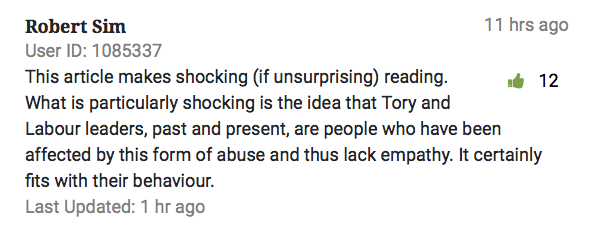
What @AngelaHaggerty says here about family participation in Glasgow marches: This is why I took the risky step of talking about the marches as an example of #Rituals in our last #DaringVentures ssn w/ @TIGERS_UK. Shining a light on the function & form of cultural rituals….
https://twitter.com/angelahaggerty/status/1439315001915891714
2. Cultural rituals: They create belonging AND othering, at the very same time. Both impacts often go unseen/unacknowledged by people participating in those rituals. Easily done if its just your culture’s ‘norm’. “Family Fun Day”
#DaringVentures
@TIGERS_UK
@paulinescott222
#DaringVentures
@TIGERS_UK
@paulinescott222
https://twitter.com/peterelliott71/status/1439346589030572035
3. Here’s an American cultural #ritual in full flow: Teachng childrn to feel comfortable with guns, frm t age of 8. Nope, it’s not called a ‘ritual’. It’s just ordinary “gun safety”. The ‘culture’ in a ‘ritual’ is most obvious to those outside t culture.
4. “The thing that is special to us”. That’s what cultural #rituals mark out -“us”, “our group”- which is very often in contrast to “them”, “not us”.
Here’s that very quote “special to us” used in US Civil War as reason for t South to hang on to slavery. vox.com/2015/8/12/9132…
Here’s that very quote “special to us” used in US Civil War as reason for t South to hang on to slavery. vox.com/2015/8/12/9132…
5. And then you use your Cultural #Rituals to re-tell, re-interpret, hide your culture’s history to yourself. You make it a Family Fun Day. You kid yourself: “This is not about modern day. This is just honouring the 1860s”.
6. And here we are in Afghanistan in 2021. The rape and kidnapping of girls as a #ritual act of the Taliban that signifies the group that is “men” vs the “others” who are women. The act of rape is not just violence. It is a cultural *ritual* for t Taliban. news18.com/news/world/tal…
7. Quote: “Rituals usually work to enhance social cohesion, because their primary purpose in most cases is to align the belief system of the individual with that of the group. The more a belief system is enacted through ritual, the stronger it becomes.” encyclopedia.com/social-science…
8/end. Very often, rituals of our group, our school, our class, our family are hidden to us. They seem so normal, so harmless, just fun. But I think if we understnd how rituals work, we see ourselves more clearly. We become wiser. We stand a better chance of transcendng division.
9/end/end. No wait! You know the video of the school chanting poetry, which is at the centre of Twitter controversy just now? Try viewing it through a “cultural ritual” lens, as per this THREAD. Lots becomes clearer. @Mr_Minchin @Dr_Pam_Jarvis @UpstartScot @abbyaug
https://twitter.com/abbyaug/status/1438756383701323776
• • •
Missing some Tweet in this thread? You can try to
force a refresh













